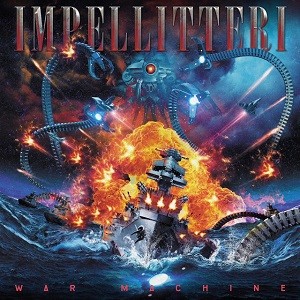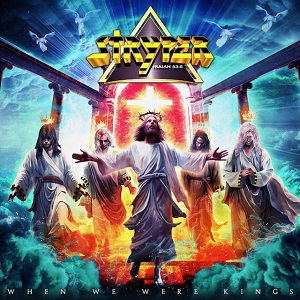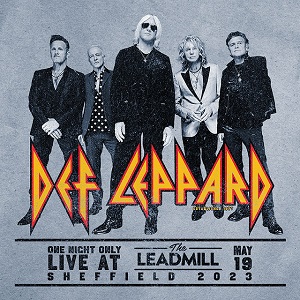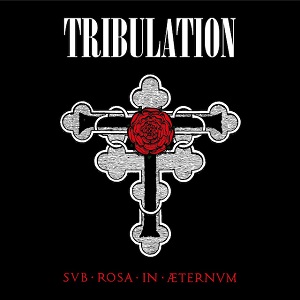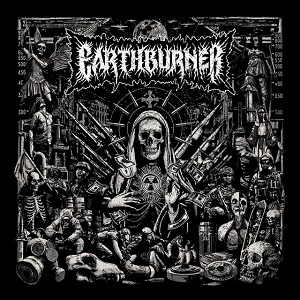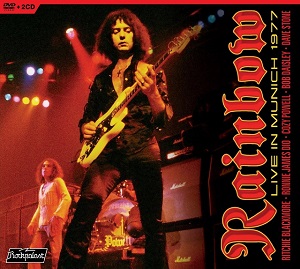HELL's Andy Sneap - "We Don't Take Ourselves As Seriously As A Lot Of Bands Take Themselves"
August 17, 2011, 13 years ago
Radio Metal has published an interview with HELL guitarist and acclaimed metal producer Andy Sneap. An except from the interview follows:
Q: In the band's biography, it's said that Kev (Bower, guitar) and Tim (Bowler, drums) had stopped playing music since 1987. How long did they need to get back to the required standards?
A: "To begin with, we sort of pieced it together. We did two or three songs a time. They were both struggling a little bit to start off with but they both could still play. You don't forget how to play, you just get better at it as you practice. So they came in and we did this. We followed the songs as well, just followed the songs as it sounded like. We went through it gradually, got the drums over a couple of days for three songs and Tim got warmed up into it. We paced it gradually, so the guys managed to get back in step and playing again. Kev has put a lot of time into playing and getting back on top with it. He's actually probably playing better than he ever did back in the 80s' now. We have some pretty solid rehearsals now for the live gigs we'll be doing the next month. It took a little bit of time. It obviously helped having recordings of the songs as well because when you start listening to the songs and enjoying them then you have an idea on what to sound like because even if you're not actually playing, it gets in your head. So yeah, they sound good."
Q: Apparently, when he started to play music again, Kev felt really inspired again. Isn't it a bit frustrating to realize that after 24 years?
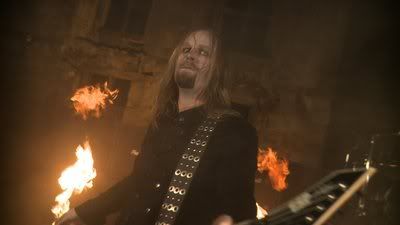
A: "I think the good thing about Kev is that he hasn't been following the metal scene for the last 20 years. He stuck his head down in the sand and walked away from music. I think it's what gives Hell a kind of a fresh edge now. He's not trying to sound like anyone else. He's not trying to be metal at times, he's not trying to be trashy at times, he's just doing what Hell always did. I think that's important now that we have something that brings a bit of fresh air into metal, because I think that so many bands coming up sounds so similar. You can't tell them apart now. Back in the 70s' and the 80s', when you heard bands like IRON MAIDEN or any metal band on the radio, you could tell who it was straight away. They all had their own identity. Bands now haven't got that. Kev really hasn't listened to anything, and I think he's done it well in a way. I think it gives us that slight edge in sounding different."
Q: Do you often ask yourself what would have become of the band if they hadn't stopped playing music for all these years?
A: "Yeah I do, and obviously I wonder what would Dave Halliday be doing now if he hadn't died in 87 as well. With all the changes taking place in the music industry today, would he be still able to do this now? Unfortunately, life gives some cruel blows sometimes. You know, this band didn't get the praise that it deserved back then. They were around in a bit of a weird time. Although we get in line with the New Wave Of British Heavy Metal sort of label, the band Hell came after that. They formed in 82, when the New Wave Of British Heavy Metal is kinda dying out. Things were getting more commercial, you got a lot of band that started to broke, a lot of american (American) bands getting signed by labels in the UK around 82-83. They were looking for the DEF LEPPARD-type thing. And then trash came along around 86-87. They missed the New Wave Of British Heavy Metal scene by about a year and they missed the thrash scene by about a year as well. They were right between them. I think they were actually 2 or 3, 4 years ahead of their time. It's a big shame that it didn't work out for them back then. The cause of their rejection was just that thelabels weren't looking for a band of their style back then. The Mausoleum deal was the only one that they got and unfortunately something went wrong in the label then."
Q: The band biography states that "the band couldn't have pursued its promising ascension maybe because it was too avant-garde, too different, too extreme, or above all, to musically intelligent and visionary". That's a very strong statement. What is the source of such confidence for the band?
A: "Us [he laughs]! I mean if not, why produce these songs? Their songs are a lot deeper when you look at it. Back in the 80s', there was no bands that were doing songs about Shakespeare or stuff like that and with that kind of theatrical element. People who saw them, a lot of the local scene in the UK here really got it. People outside of that, journalists and people based in London who never saw the live experience and just had recordings never got it, and they don't remember as well. Back in the early 80s', it was very different for a band to try and promote themselves. There was no internet, not even fax machines back then. Even for a phone-call, you had to find a phone-booth... It was really limited to try and get labels interested. You had to go and do showcases in London, it was expensive and it was a poor time in the country. For record labels and journalists to really appreciate what a band wanted to do with the theatrics on the stage, it was very difficult to go across. I think now, with the way the world got smaller, it's a better time for that. Picking up on a different genre in the metal is easier now, it's not as limited as it was back then. In the 80s', people didn't get what Hell was trying to do."
Q: The video for 'On Earth As It Is In Hell' as a very kitsch aspect which recalls the imagery of the first heavy metal bands. The lyrics and the artwork also have this kitsch dimension and more: the album will be released in Friday, the 13th. Everything is in there! Is it a way for the band to tell us this album should have been released in the 80s'?
A: "You gotta love that! Like I said, we hadn't really thought about it. We've just done what we enjoy. It's not a joke, you know, but we don't take ourselves as seriously as a lot of bands take themselves. It's entertainment in the end of the day. The image, the music, it's all deadly serious, but we're not guys that go out and burn churches and take that to that sort of extend. It's pure entertainment. It's good old-fashion heavy metal. In the imaginary too. Why not? I miss that, the story-telling and imagery in heavy metal now. When you look at what bands where doing in the 80s', even like Maiden on Number Of The Beast, they weren't taking themselves seriously, it was story telling at the end of the day. That's where the band is coming from. I was just kinda taking what they were doing originally in the 80s' and apply it now. If people like the music, great! If people like it and really dig what we were doing across the board, great! If they don't like it, I don't care. The way the metal scene's gone now, everyone's trying to be way to serious and way to image-conscious. Everyone tries to be tougher than everyone else. To me, it's always entertainment. I love what Rammstein is doing, for instance. I think they've got it right. They've got this theatrical side... It's a real show. It's good music, it's theatrics, and during the show, the music complements the imagery and the imagery complements the music. That's really what we wants to do with this."
Read the full interview here.
Check out BraveWords.com scribe Carl Begai's new Hell story at this location.






